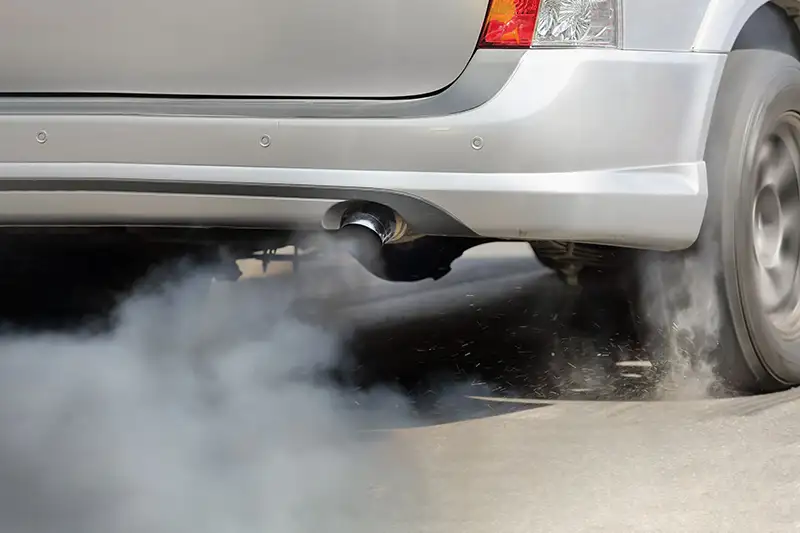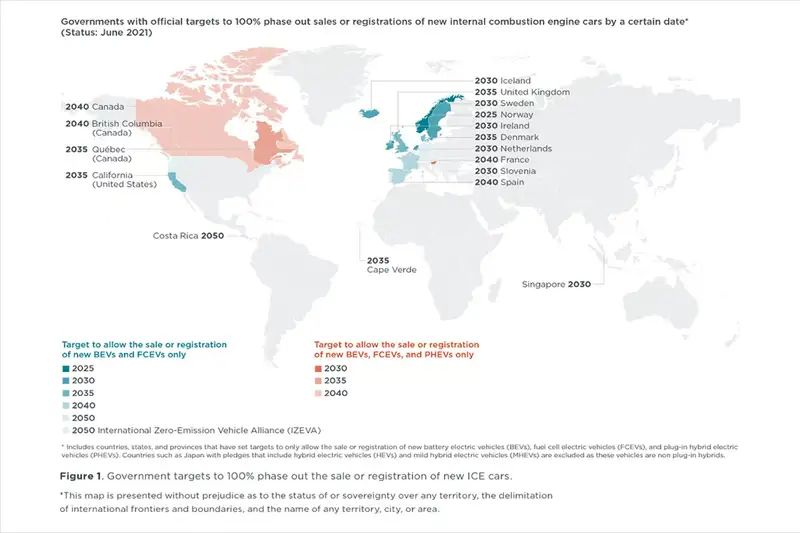ICCT update on government targets for phasing out new sales of ICE passenger cars
24 June 2021

GFEI partner the International Council on Clean Transportation (ICCT) has recently published a global overview of all targets announced (as of June 2021) for phasing out of the sale or registration of new internal combustion engine (ICE) passenger cars.

Figure 1 highlights countries, provinces, and states whose governments have stated an intention to only allow the sale or registration of new battery electric vehicles (BEVs), hydrogen fuel cell electric vehicles (FCEVs), and plug-in hybrid electric vehicles (PHEVs) by some future date. Announcements that signal an intent to phase out the sale or registration of new gasoline and diesel cars but would explicitly permit the sale or registration of other new vehicles using fossil fuels, such as mild hybrid electric vehicles and hybrid electric vehicles, as well as compressed natural gas and liquefied petroleum gas vehicles, are not shown. Additionally, governments that limit the ICE phase-out target to certain user groups, for example private passenger cars, are also not highlighted.
The phase-outs called for in different jurisdictions vary in their timing and in their definition of what qualifies as a zero-emission, or non-ICE, vehicle. An understanding of the different vehicle technologies involved is important when considering the potential climate implications of these initiatives, and the ICCT briefing provides an overview of these technologies.
ICE bans are one of the tools that GFEI set out in its Vehicle Efficiency and Electrification: A Global Status Report, which stated “ICE sales bans, the ‘mirror image’ of ZEV sales requirements, can be helpful to set the long-term trajectory but must be part of a broader strategy As countries seek to reduce the impacts of emissions from transport to comply with the GHG reduction goals under the Paris Agreement, a transition to zero-emission vehicles is essential. By setting these targets, governments have sent a clear signal, even if not in the form of binding regulation, as is the case for countries of the European Union of their commitment to this transition.